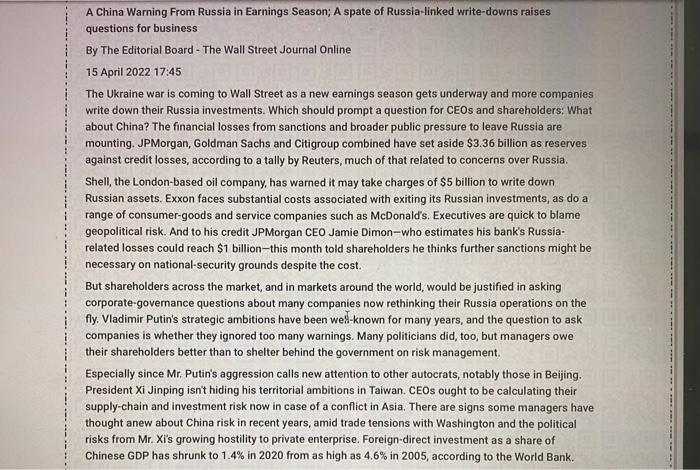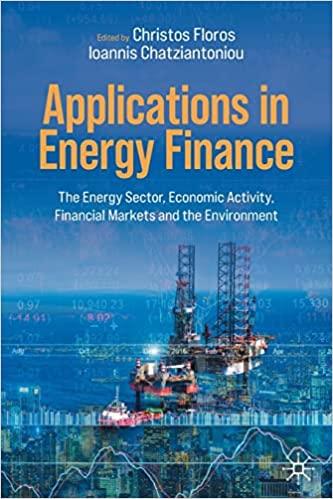Explain the motivation for the reconsideration of the country risk of China.

A China Warning From Russia in Earnings Season; A spate of Russia-linked write-downs raises questions for business By The Editorial Board - The Wall Street Journal Online 15 April 2022 17:45 The Ukraine war is coming to Wall Street as a new earnings season gets underway and more companies write down their Russia investments. Which should prompt a question for CEOs and shareholders: What about China? The financial losses from sanctions and broader public pressure to leave Russia are mounting. JPMorgan, Goldman Sachs and Citigroup combined have set aside $3.36 billion as reserves against credit losses, according to a tally by Reuters, much of that related to concerns over Russia. Shell, the London-based oil company, has warned it may take charges of $5 billion to write down Russian assets. Exxon faces substantial costs associated with exiting its Russian investments, as do a range of consumer-goods and service companies such as McDonald's. Executives are quick to blame geopolitical risk. And to his credit JPMorgan CEO Jamie Dimon-who estimates his k's Russia- related losses could reach $1 billion-this month told shareholders he thinks further sanctions might be necessary on national-security grounds despite the cost. But shareholders across the market, and in markets around the world, would be justified in asking corporate-governance questions about many companies now rethinking their Russia operations on the fly. Vladimir Putin's strategic ambitions have been well-known for many years, and the question to ask companies is whether they ignored too many warnings. Many politicians did, too, but managers owe their shareholders better than to shelter behind the government on risk management. Especially since Mr. Putin's aggression calls new attention to other autocrats, notably those in Beijing. President Xi Jinping isn't hiding his territorial ambitions in Taiwan. CEOs ought to be calculating their supply-chain and investment risk now in case of a conflict in Asia. There are signs some managers have thought anew about China risk in recent years, amid trade tensions with Washington and the political risks from Mr. Xi's growing hostility to private enterprise. Foreign-direct investment as a share of Chinese GDP has shrunk to 1.4% in 2020 from as high as 4.6% in 2005, according to the World Bank. la c Yet there are still signs of complacency. As of 2021, 83% of American companies operating in China weren't considering or weren't in the process of relocating their manufacturing or sourcing out of China, according to the most recent American Chamber of Commerce in China business-climate survey. That figure is unchanged since 2019, despite the supply-chain chaos wrought by Beijing's zero-Covid policies and rising geopolitical tensions. For service companies, 97% of respondents reported their plan to stay put, though service providers have been targets of some of Mr. Xi's boldest crackdowns. China is a much larger economy than Russia, and Western executives might conclude it would be a disservice to shareholders not to compete in that market. Yet precisely because of China's size, the economic risks associated with a possible conflict would be much greater. Russia write-downs are a warning to Western executives to start preparing now for the possibility that danger is ahead









